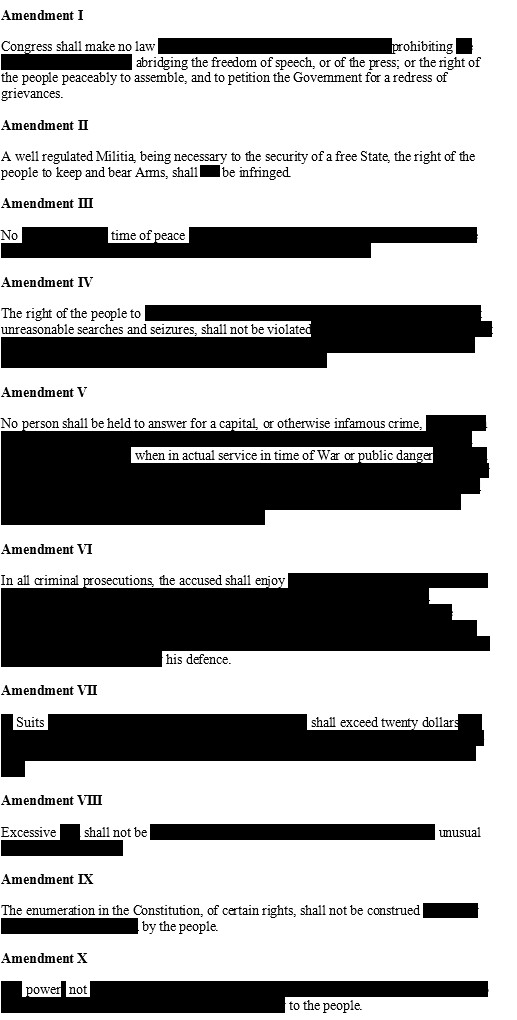Quantum Windbag
Gold Member
- May 9, 2010
- 58,308
- 5,101
- 245
On Monday, June 28, 2010, in McDonald v. City of Chicago, the Supreme Court inadvertently held that Congress had already applied the entire Bill of Rights to the states through the Civil Rights Act of 1866. The Court held that the Civil Rights Act was intended to protect substantive rights, including the Second Amendment right to bear arms. The same evidence of legislative intent, however, shows that Congress sought to enforce the Bill of Rights generally against the states. This means, among other things, that Congress has enforced all of the remaining provisions of the Bill of Rights against the states: The Third Amendment, the Fifth Amendment Grand Jury trial right the Seventh Amendment civil jury right (depending on what that right actually is), and the Eighth Amendments ban on excessive fines. Under the Courts new reinterpretation of this venerable civil rights statute, the Civil Rights Act of 1866, currently codified at 42 U.S.C. section 1981, offers a general guarantee of basic constitutional liberties against the states....
And this leads us to the last, shocking revelation: If the Courts argument about Congresss intent in McDonald is correct, it follows that the main holding in McDonald is completely superfluous and the Court reached out unnecessarily to decide a constitutional question. After all, if the Court is correct that the Civil Rights Act of 1866 was designed to enforce a substantive right to bear arms, the Chicago ordinance is preempted to the extent that it conflicts with 42 U.S.C. section 1981. Thus, the Court could simply have noted that the Reconstruction Congress intended to apply the right to bear arms to the states through the 1866 and 1870 Civil Rights Acts, and then deferred the constitutional question. Why Justice Alito felt compelled to keep going at this point is puzzling. Perhaps he did not realize that the Civil Rights Act of 1866 is still in effect!
Balkinization
This could be interesting. Imagine the impact if the entire Constitution actually applies to the states.


